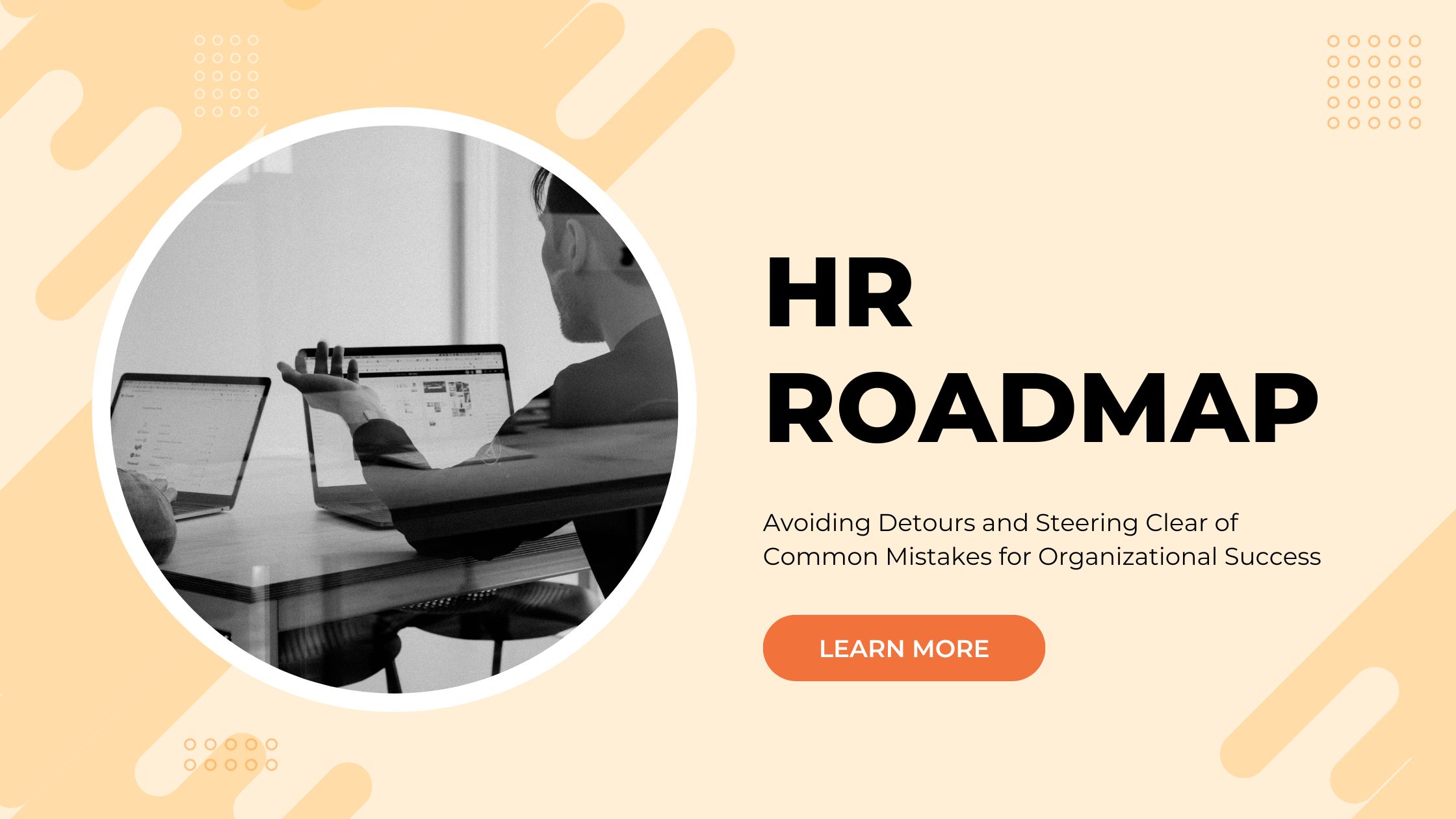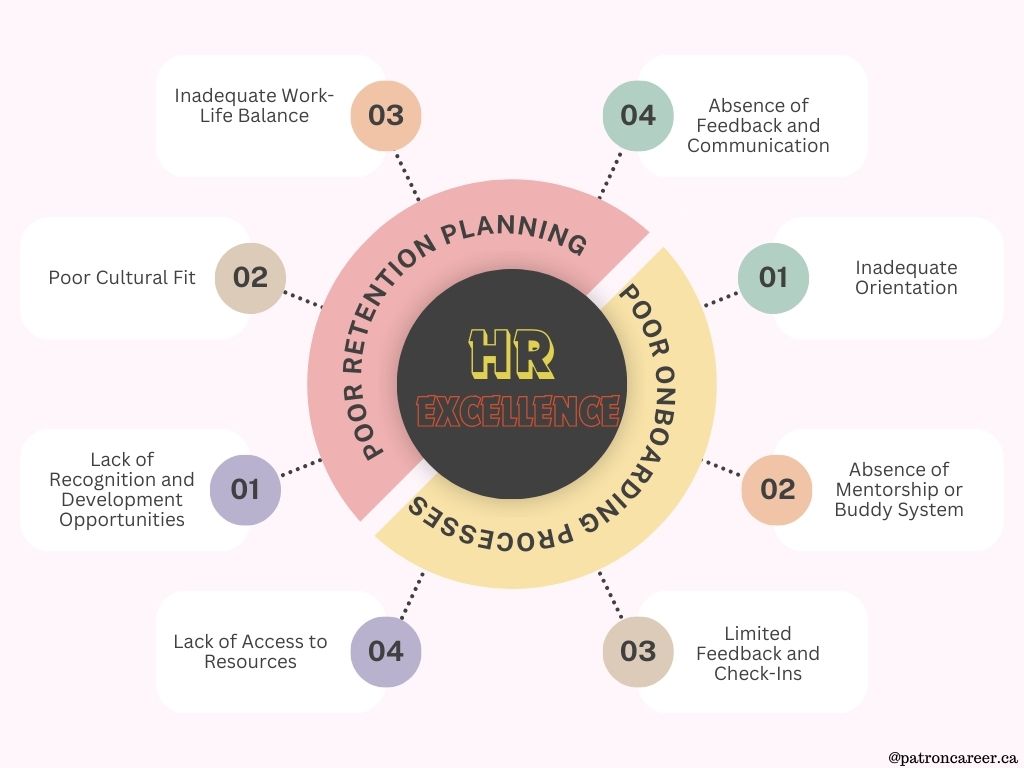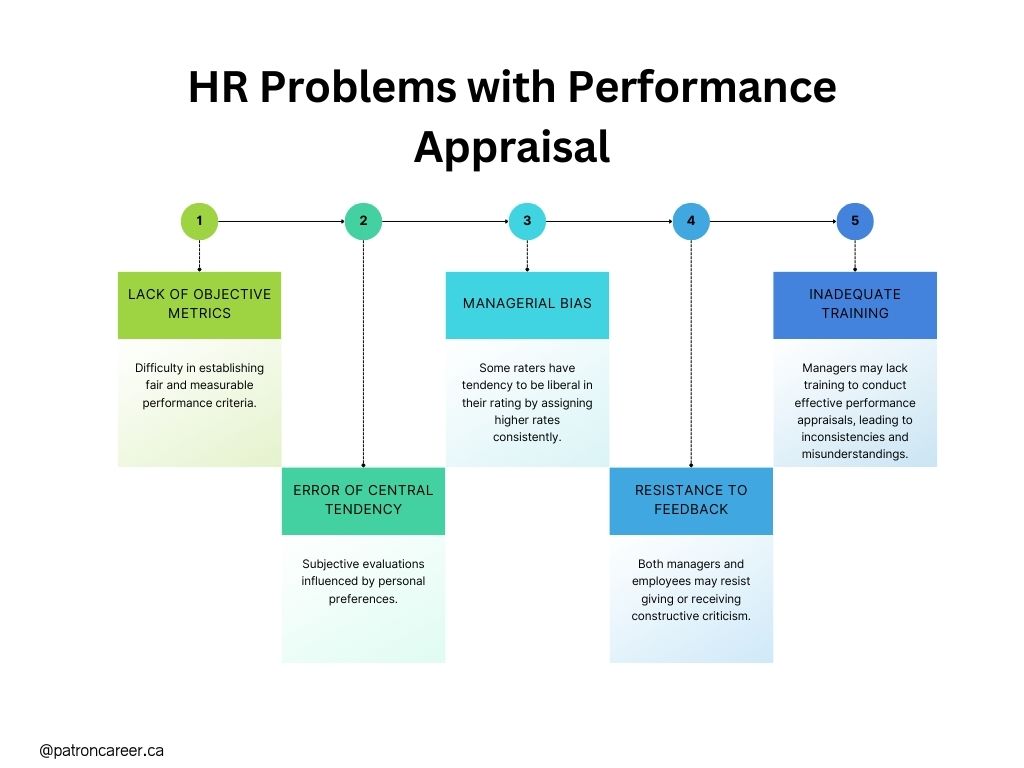
Workplace Healthy Wellness
9 February, 2024
Patron Career Staffing firmly believes in adopting a tailored approach to meet temporary and permanent recruitment needs. We safeguard the interest of our clients by finding such workers who are knowledgeable and reliable.
About UsNeed help? Make a Call
32 Dundas Street East Unit A, L5A1W2

The linchpin to a successful business is not its capital or assets, but the people who help build it- the HR. Not only is it the heartbeat of any organisation but HR propels a company forward by bringing in outstanding talent and retaining the same. Human resources are the professional entity responsible for the management of the people and various aspects related to the workforce- recruitment, selection, onboarding, induction, training, benefits, compensation, and employee relations to name a few.
However, even seasoned HR professionals can fall prey to common pitfalls that hinder the smooth functioning of a company. the job is daunting and requires HR experts to be well-timed and cautious in decision-making as even on trivial mistake can harshly impact the growth of your company. So, stay put while we point out nine of the most prevalent HR mistakes and provide valuable tips on how to steer clear of them.
1. Inadequate Recruitment and Selection Processes
One of the fundamental roles of HR is to attract and retain top talent. However, rushing through the recruitment process or failing to thoroughly vet candidates can lead to hiring the wrong people for the job. It can be risky to invest with no HR plan in the process of recruitment. Hiring the wrong person for the wrong job only escalates failures in the long run. Bad hires can cost you money, time and effort.
Tip: to lower the chances of this happening, we suggest you Take time to thoroughly define job roles and requirements, i.e. the job description should be clear and cogent. Use diverse sourcing channels to attract a wide pool of candidates. Implement structured interview processes and involve key stakeholders in candidate evaluations to ensure a good fit.
2. Neglecting Employee Onboarding
Proper onboarding sets the tone for an employee's tenure at a company. Neglecting this process can result in disengagement and decreased productivity. With a curated onboarding plan, companies can lower attrition rates and increase the productivity and morale of workers, as they step into the new workplace.

Tip: Develop a comprehensive onboarding program that covers company policies, job responsibilities, and cultural norms. What you can do is to assign a mentor or buddy to guide new hires through their initial weeks. Solicit feedback from new employees to continually refine the onboarding process.
3. Lack of Clear Communication
Effective communication is vital in any organization, and HR plays a crucial role in facilitating it. Miscommunication regarding policies, procedures, or expectations can lead to confusion and frustration among employees. Implement transparent communication channels, such as regular meetings, newsletters, and an accessible HR portal, to keep employees informed and engaged.
Tip: Establish open channels of communication through regular meetings, newsletters, and an accessible HR portal. Ensure that policies, procedures, and expectations are clearly communicated and readily available to all employees. Encourage feedback and address concerns promptly.
4. Ignoring Employee Development Failing to invest in employee development can stifle growth opportunities and lead to talent attrition. HR should prioritize training and development initiatives that align with both individual and organizational goals. Encourage continuous learning through workshops, seminars, online courses, and mentorship programs to foster a culture of growth and innovation.
Tip: Invest in ongoing training and development opportunities tailored to employees' career aspirations and organizational needs. Offer resources such as workshops, seminars, online courses, and mentorship programs. Create personalized development plans and track progress regularly.
Related: 4 STEPS TO CREATE AN EFFECTIVE EMPLOYEE TRAINING PROGRAM
5. Disregarding Performance Management
Effective performance management is essential for employee engagement and organizational success. Neglecting regular performance evaluations, feedback sessions, and goal-setting can result in demotivated employees and subpar outcomes.

Tip: Implement a structured performance management system with clear goals, regular feedback sessions, and performance evaluations. Provide training to managers on delivering constructive feedback and coaching. Recognize and reward high performers to reinforce desired behaviours.
Read: The Essential Elements to Build a Strong Employee and Employer Relationship
7. Overlooking Compliance and Legal Obligations
Non-compliance with employment laws and regulations can expose the organization to legal risks and financial penalties. HR must stay abreast of relevant laws and regulations governing areas such as labour rights, discrimination, and health and safety.
Tip: Stay informed about relevant employment laws and regulations and regularly update policies and procedures to ensure compliance. Conduct regular audits of HR practices and seek legal counsel when needed. Provide training to HR staff and managers on legal requirements and best practices.
8. Neglecting Diversity and Inclusion Embracing diversity and fostering an inclusive workplace culture is not only morally imperative but also beneficial for business performance. HR should actively promote diversity and inclusion initiatives, such as diversity training, affinity groups, and unbiased recruitment practices.
Tip: Develop diversity and inclusion initiatives tailored to the organization's unique culture and needs. Implement unbiased recruitment and promotion practices. PCS suggests you to reach out to the employees through diversity training and foster an inclusive environment where everyone feels valued and respected.
9. Failure to Adapt to Change
The Canadian business landscape requires employers to be adaptive to dynamic environments and competition. HR should proactively anticipate and respond to changes in the industry, technology, and workforce demographics.
Tip: Foster a culture of adaptability and innovation by encouraging open- mindedness and experimentation. Stay informed about industry trends and technological advancements. Provide training and support to help employees adapt to change and embrace new ways of working.
Summing Up
By avoiding these common HR mistakes and implementing proactive strategies, organizations can cultivate a positive work environment, maximize employee engagement, and drive sustainable growth. HR professionals play a pivotal role in shaping the culture and success of an organization, and by prioritizing best practices and continuous improvement, they can ensure the long-term success of their workforce and business.
If you're looking to hire temporary or permanent talent, PCS can help you. Learn more about how we can assist you in searching for top-quality talent to fill in your vacant positions.
